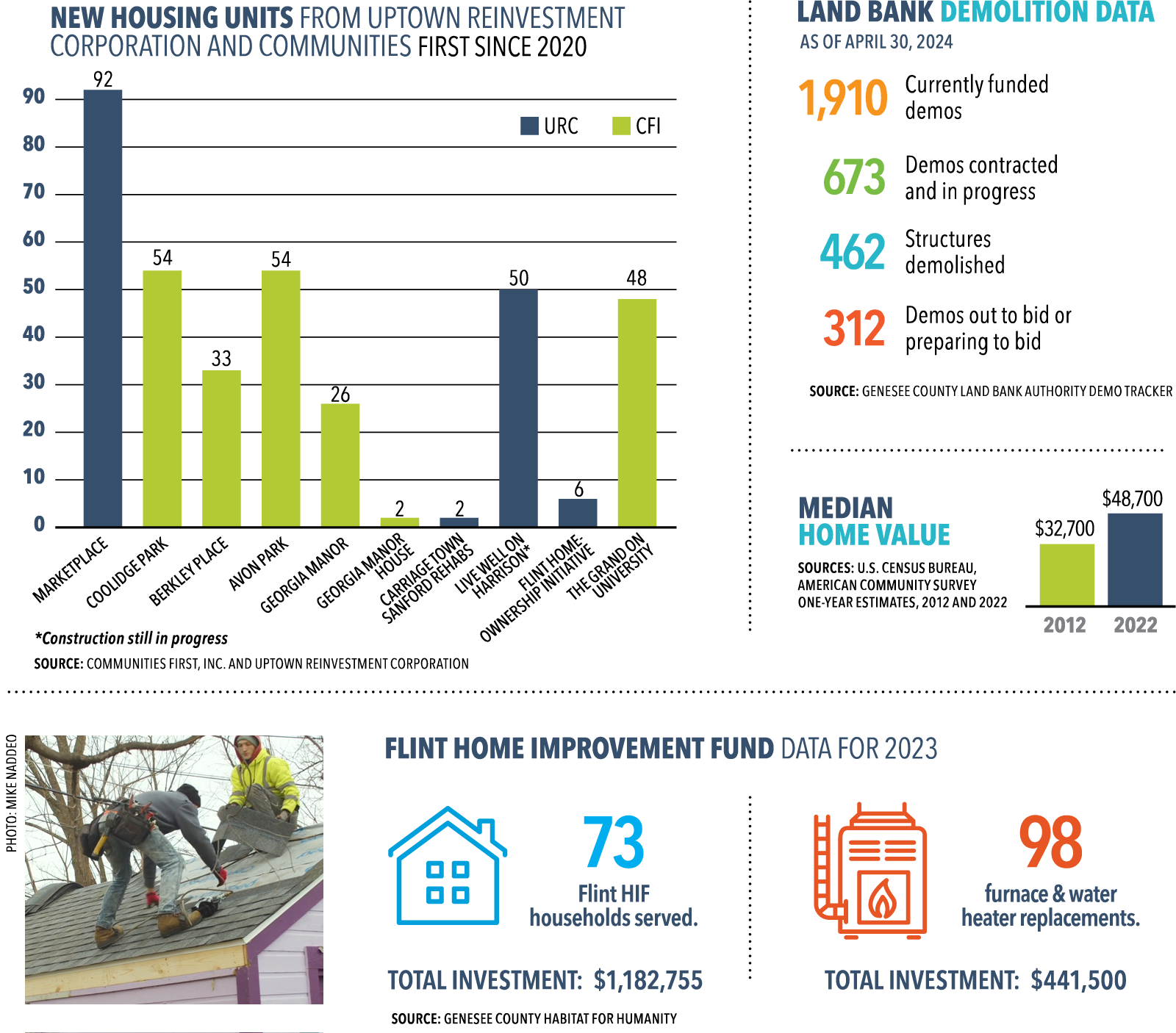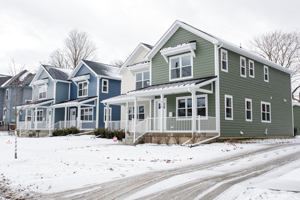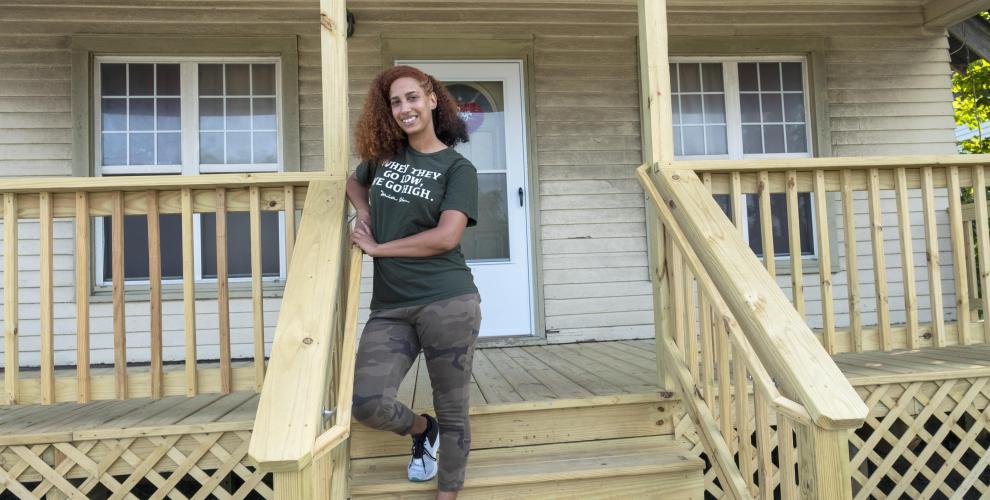“I applied for the program initially because it was not credit based, so that was important to me. Also, the loan terms were so stretched out, the monthly payments were low, and it was for Flint homeowners. So, I was like, ‘Okay, this might be just the program that I need.’”
— Ashara Manns, homeowner, speaking about the Flint Home Improvement Fund

THE ISSUE
Housing is more than shelter. Good housing leads to better health outcomes, safer neighborhoods and a higher quality of life. Home ownership also helps families pass wealth along to the next generation and break the cycle of poverty. However, despite new development in the city, homelessness and blight have had a negative impact in Flint for decades. New housing cannot be built quickly enough to meet demand. According to the Flint and Genesee County Continuum of Care, nearly 4,000 people experienced homelessness in Genesee County in 2022, and 11% of those individuals were completely unsheltered, living on the streets or in spaces not suitable for human dwelling.
THE RESPONSE
Government and the private sector recognize the need for more affordable, quality housing in Michigan. In January 2024, Gov. Gretchen Whitmer called for $1.4 billion of state and federal money to build or rehabilitate 10,000 homes of all sizes and varieties throughout Michigan. While this will be a boost for housing throughout the state, the Genesee County Metropolitan Planning Commission found that 7,000 units of affordable housing are needed in the county for those with very low incomes. Although local developers are annually building 100‑200 new units in Genesee County, it would take 35 years at the current pace to eliminate the housing shortage.
Residents have repeatedly said that maintaining quality housing is also a concern. Low- and middle-income residents are often unable to secure traditional loans for home improvements due to current home values. In 2020, several funders, including the Mott Foundation, provided support to Genesee County Habitat for Humanity to expand its Flint Home Improvement Fund. This multifaceted program enables Flint residents who either cannot afford or do not qualify for other home improvement lending programs to address vital home repair needs.
Successful neighborhoods need active resident participation and diversity of housing to be successful. Organizations such as the Neighborhood Engagement Hub and Flint Neighborhoods United support neighborhood associations, block clubs and engaged residents to beautify and activate neighborhoods around the city.
Facts & Figures




DID YOU KNOW?
Several local organizations are building new housing in Flint. For example, Communities First, Inc., has built 217 rental units, most of which qualify as affordable housing, since 2019. Uptown Reinvestment Corporation, in partnership with Michigan Community Capital, recently focused on a new neighborhood project, that brought some of the first new construction to the historic Carriage Town Neighborhood in nearly a century. Six units of housing in Carriage Town were completed by the end of 2023. The modest, affordable homes went up for sale in early 2024.

